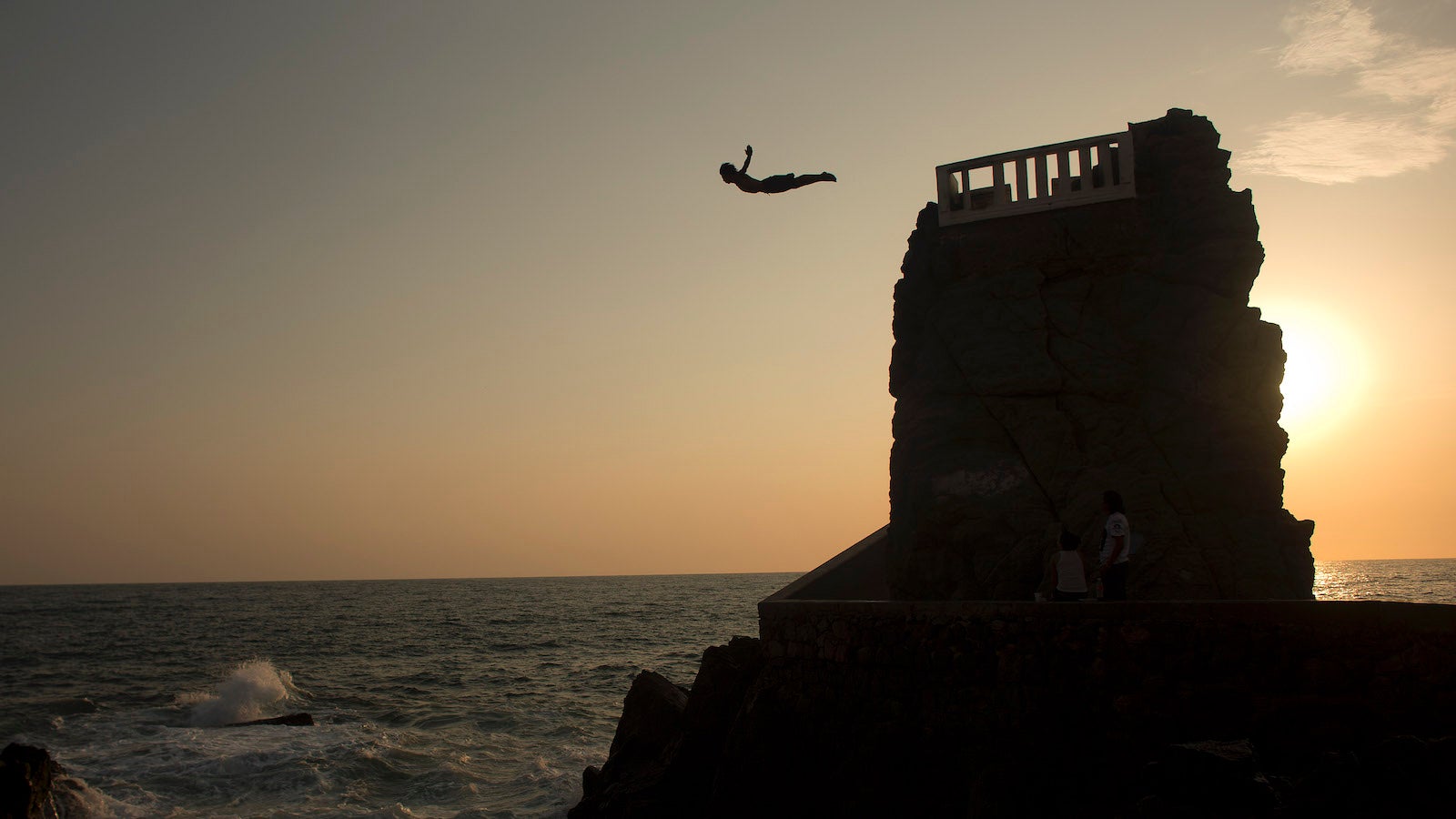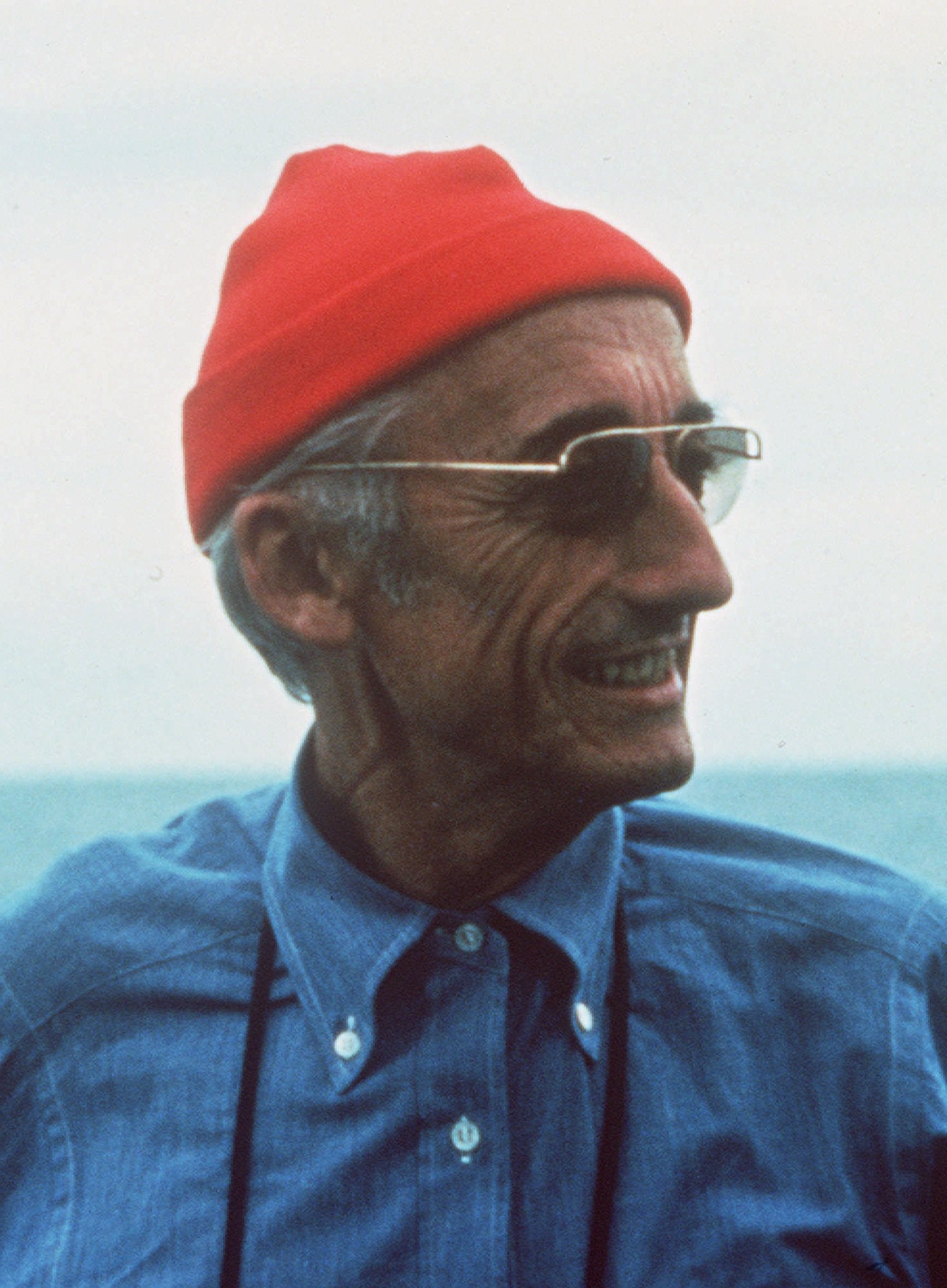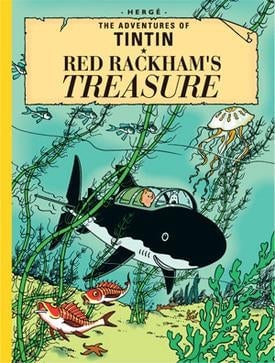Proof of a successful life isn’t fame—it’s getting something done
Fabien Cousteau grew up understanding the power—and drawbacks—of fame. His grandfather was legendary ocean documentarian and conservationist Jacques Cousteau. (You might recognize his red-capped caricature as the inspiration for Bill Murray’s eponymous character in The Life Aquatic with Steve Zissou.) “It was omnipresent,” Fabien says. “When he would visit the US, the Americans would recognize him before the French president.”


Fabien Cousteau grew up understanding the power—and drawbacks—of fame. His grandfather was legendary ocean documentarian and conservationist Jacques Cousteau. (You might recognize his red-capped caricature as the inspiration for Bill Murray’s eponymous character in The Life Aquatic with Steve Zissou.) “It was omnipresent,” Fabien says. “When he would visit the US, the Americans would recognize him before the French president.”

Determined not to cruise on his surname, Fabien set about making his own impact while continuing the family legacy. He has increased public understanding and acceptance of sharks. He has created education initiatives to get our youngest generation more interested in their local water ecosystems. He has lived underwater for a whole month conducting research. Instead of just doing it for the ‘gram, he actually gives a damn.
Quartz sat down with Fabien during the Global Exploration Summit in Lisbon, a conference organized by The Explorer’s Club, to ask him what motivates him—and how to motivate the next generation. This interview has been condensed and edited.
Quartz: I’ve heard you’re a big Tintin fan. Between him and your grandfather, you must have been surrounded by stories of wild adventures. What did Tintin teach you?
Fabien Cousteau: To dream. I was a bit of an ADD kid, back before anyone was ever diagnosed as that. I would always look out the window and dream about the next expedition, the next adventure. And my grandfather (of course), my grandmother, and my family in general were partly to blame for that.
But I also loved comic books. Illustrated stories brought me on those journeys as a kid. What kid doesn’t love cartoons? They take you into these magical places and possibilities.

Tintin happened to be a little bit more realistic and a little closer to home. He was a young boy with a dog going on these crazy adventures, and I’ve always loved animals. I grew up with animals at home—hamsters and cats and dogs—so for me, I could relate. He went to the Moon and to the bottom of the ocean and to the top of Tibet, just amazing stuff. Being able to take my dog in a shark-shaped submarine? That’s so cool! As a seven, eight-year-old kid, it always made me think, “Ah, this is so cool. Why aren’t we doing more of this?” Like, I want to do that!
As a matter of fact, that was also a catalyst for writing my first series of comic books, which are coming up. The first one just got illustrated and put to market in North America. Soon it’ll be in France, and then the rest of the world. It’s called the Great White Shark Adventure. It’s based on some of the real-life expeditions that I’ve done, but fantasized. It’s based on facts and has a lot of science in it, but it’s also a mix of the Tintin magic, where you’re brought into this illustrated fantasy world in a way.
Hopefully that transports the reader on this adventure where you think, “Wow, that’s so cool. I want to be part of that.” And all the while you’re infused with an understanding of the importance of sharks, and maybe an appreciation for them. Whether you like them or whether you want to hug one or not is a different story! But the reader should understand that they’re an absolutely essential part of the underwater world. Whether you see one down the road or not, hopefully it will instill an underlying, subliminal appreciation and protection of them within your decision-making process as an adult. That’s really the idea: to have young people dream again, and dream in a way that is respectful to our current support system.
It used to be that to be told to stay inside was the worst thing as a kid—you just wanted to be outside the entire time, out on make-believe adventures. Now the idea of getting to stay inside and play games on screens is kind of the desired state. Were you always an outside kid?
That’s like the biggest FOMO ever, when you put it that way!
Life is continuing right outside your window. You can be part of it now, or you can miss it.
How have you watched technology change younger generations?
These things [holding up his phone] didn’t exist when I was a kid. What we’ve done with that technology is a travesty to the technology and to the power that it holds within it. Most of the time we use it for garbage. Yes, I’m all for entertainment—sometimes we all need to tune out and shut our brains off—but by and large, we have misused the power of that technology.
I’ve seen the evolution of these devices, and they have become more distraction than useful. And that’s a shame, because had we marketed those devices in a different way, I think we would be using them for the greater good as much as entertainment. I keep telling people I bought my smartphone for my convenience, not everybody else’s.
That’s a really nice way to say it.
I love my cell phone and yes, I still play video games and all that stuff! But part of the issue is that we’re bombarded with a lot of negativity. When we’re bombarded with a lot of garbage, that’s useless. We tune out of bolstering and empowering young generations to have a greater understanding of what’s facing us—both the magic and beauty and mystery of what’s still out there to explore, and the necessity and need and the urgency of what we need to protect.
My generation, which I’ve very ashamed of, has squandered the opportunity to lead by example. So that gap, that lost time, needs to be brought back. We need to be able to empower these generations and give them the right tools, the right opportunities, and the right knowledge to be able to make them the future heroes—the future explorers that will be even better citizens and shepherds of our planet in a way that gives them back what we’ve taken for granted.
But we’re so hooked on our phones. The cult of Instagram has taken over adults, as well as kids.
This is what drives me crazy about today’s society, the way we’re trying to brainwash people: Instagram famous is not famous. Who gives a shit? Honestly, you’re not doing a thing. Go do something.
Doing something is much more important than being famous. Famous is not the goal; that’s inconsequential. If you can leave a positive mark on this planet and feel proud of it, that’s a whole different story. There are a lot of talented people out there that are never going to be famous. And yet they’re just as valuable.
To me, it’s not about being famous: It’s about doing things that you love, things that you’re passionate about, things that when you leave this world, you leave it in a better place. Whatever your talents are, be it an accountant, an astronaut, or a sanitation worker, leave this place in a better place. Leave this place feeling like you’ve accomplished what you wanted to accomplish and in a way that makes you happy.
Being famous doesn’t make you happy. Being rich does not make you happy. Trust me. Talk to the billionaires, talk to the famous people. They will tell you that. Most of them will tell you that billionaires are bored out of their minds. Yes, they can buy all the toys that they want, but it does not make them happy. Being healthy, having a family that’s healthy, and hopefully having a sense of accomplishment in whatever your passion is makes you happy. Experience of amazing things makes people travel. If you can experience the weird, the wonderful, the strange, or the scary, that makes people happy.
Not everyone has to be an explorer. Most people aren’t, but explore your own life. If you’re passionate about what you do, you will be a success, no matter what. You may not make billions of dollars, but it doesn’t matter. As long as you can pay your bills and you’re happy, healthy, and you can provide for your family, that’s all that matters.
At the end of the day, we can’t take money or fame with us. Who gives a shit whether you have a Ferrari or not? Honestly? That’s not important. What’s important is health, happiness, being able to put food on the table, pay your bills, and—most importantly—do what you’re passionate about.
Some people don’t know what they’re passionate about though—what their “purpose” should be. How can they find that source of happiness?
To go full circle back to technology, I feel like we’ve become a bit too reliant and complacent because of certain technologies. It comes back to convenience as well: Life is not convenient. We’re sitting here in this beautiful museum in the comfort of air conditioning with food laid out on the table and all sorts of drinks—but most of the world doesn’t get that. Most people struggle in their everyday lives just to make ends meet, just to put food enough food on the table to feed their families. Life is not easy. And the delusions that we have in these moments of life being easy is a poison on our perspective. We have to understand that.
That’s why I emphasize the fact that no matter what demographic you’re from, take a walk. Go out there and go into a place that makes you feel like a foreigner. Be uncomfortable. Get out of your element. Hopefully it’s a different country where they don’t even speak the language you speak, and immerse yourself in that experience, because it makes you a better person. It makes you appreciate all the various things that make life interesting. And it opens up your horizons and understandings and acceptance.
Wouldn’t it be fantastic if people were offering themselves this experience at least once in their lifetimes? They would be much more tolerant of other human beings. They would be much more understanding of the need to take better care of this planet. They would be much more knowledgeable and wise. We would be in a much better place.
But many of the unprivileged populations you’re talking about don’t have enough upward mobility to do that—to go experience another country and get uncomfortable. How can people gain the benefits of exploration without having to leave their own city?
That’s where it goes back to technology and cell phones. Most everyone on this planet has access to a mobile device of some sort. It goes back to the old saying: “Knowledge is power.” And being able to disseminate that information, that knowledge, in way that is empowering and meaningful to all demographics is extraordinary. Whether it’s a refugee that’s going from Africa to Europe to try and find a better life, fleeing some horrific circumstances, or whether it’s a businessman in an ivory tower in New York City, we can use the power that these things give us in a meaningful way to connect the world.
Because at the end of the day, regardless of where you’re from or what your life is like, we’re all in the same boat. And unless we help each other out by default, we’re not getting out of this, regardless of the demographic. So it behooves all of us—billionaires and disadvantaged people alike—to work together and try to figure out the various problems communities and individual are in. It’s a symbiotic relationship, because otherwise we’re fooling ourselves.
I just really hope that my generation is not going to fall prey to the same thinking previous generations have.
For the first time in history, the next generation is not going to be as upwardly as the previous generation.
Do you think that’ll be motivation enough for people to want to change?
So what’s the sense of giving up if we can stand to save as much as possible? Hopefully all of us globally and individually will benefit as well from making better decisions. There will be sacrifices; decisions aren’t without consequences. But by and large, there will be a lot more benefits.
I look at my seven-year-old, and how could you give up? How could you throw your arms up when you’re looking at a young person? It makes no sense, because regardless of whether you’re and environmentalist, regardless of what your focus is in life, the one thing that we all have in common—CEOs, presidents, fishermen, the poorest of the poor in Bangladesh—we want the best for our children. We want to protect them. And we want to be able to give them a better life. And the only way to do this is to try.